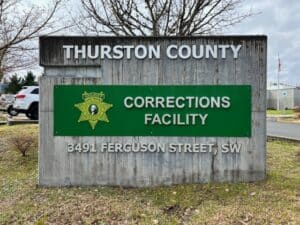
This is one of the most common questions asked each week. Potential clients want to know whether spending the money for an experienced criminal defense attorney will make a difference. Hopefully the detailed explanation of how I review a criminal case will help you better understand.
How Will You Help Me?
When a new criminal defense client calls, the most important question we answer is, “How are you going to help me?” Some people want to know why they should hire a private attorney rather than try to qualify for a public defender. Others want very specific instruction on how I plan to defend their charge. While specific advice is hard to give before I know all of the details and have read police reports, there are some tactics or tools that I always consider when looking at a defense case.
First, I read the police reports and any other documentation surrounding the charge. I’m looking to determine whether the arrest was a lawful arrest under the 4th Amendment. Additionally, I’m looking for “suppression” issues. This means that the evidence exists but, based on procedural problems, I ask the court to make a finding that the State can not use that evidence in a future hearing or trial. In essence, I’m trying to take away the State’s evidence that would be used against you. For example, a 17 year old is at a party and consuming beer. A police officer comes through the door and sees the minor drinking beer. The officer then asks the 17 year old for her age and the minor tells him that she is 17 years old. Without more follow up, the officer arrests the juvenile for MIP (minor in possession). At trial, the juvenile’s answer, “I’m seventeen,” is suppressed because the officer did not read Miranda warnings to her. Age is a required element that the prosecution must prove at trial. However, with no evidence of age (since her response is suppressed), the state can not prove the crime of MIP.
After reviewing all police reports and charging documents on face value, I look beyond what is in the reports to see what other evidence exists. This evidence may contradict police reports or add new facts that shed a different light on the conduct. I’m looking for material from dash cams, body cam video, video from parking lots, documented proof of an alibi, proof of police equipment malfunction such as a breath test machine, complaining witness bias, and investigation misconduct such as a pretextual stop. A pretextual stop is when an officer pulls you over for X but they want to arrest you for Y. They use the X stop to snoop for evidence of Y, which they could not otherwise acquire but for the X stop. Unlike the suppression issues above, the type of evidence I’m looking for at this point will go to weight rather than admissibility of evidence. Essentially, I’m discrediting and weakening the evidence and the State’s case as a whole.
What If The State Has A Strong Case?
If I find the State’s case to be solid (they can meet their burden of proof on all of the elements of the crime), I look for the best options to mitigate damage for my client. For example, I might suggest we approach the victim about a Compromise of Misdemeanor. This means my client pays an agreed amount to the victim that I negotiate in exchange for the victim signing a document that will effectively dismiss the case. This works in most cases but not all. For example, you can not do this on a DUI or any domestic violence case. If the case is not resolvable by a Compromise of Misdemeanor, I look to see if we can resolve the case with a Pretrial Diversion Agreement (PDA). A PDA is a contract you enter into with the Prosecuting Attorney that, over time, results in your case being amended to a lesser charge or dismissed. The client must agree to long term conditions that may involve treatment or restitution to a victim. Finally, I sometimes consider a Deferred Prosecution if the State will not agree to a PDA. A Deferred Prosecution is a five year program that consists of two years of treatment followed by three years of unsupervised sobriety. Typically, I do not suggest these for a person on their first DUI. You only get one Deferred Prosecution in your lifetime so it must used very carefully.
Witt Law Group is a DUI defense and criminal defense law firm located with offices in Bremerton and Gig Harbor Washington. We can be reached in the evenings or on weekends to answer questions about your case. Please give us a call or fill out or online contact form and someone will generally reach out to you within an hour.

Get help now
Whether you choose to handle your case alone or engage the Witt Law Group, being informed and prepared is essential. Early involvement of an attorney can significantly impact your chances of a fair recovery, allowing you to focus on healing while we handle negotiations with insurance adjusters to secure fair compensation for your injuries.




